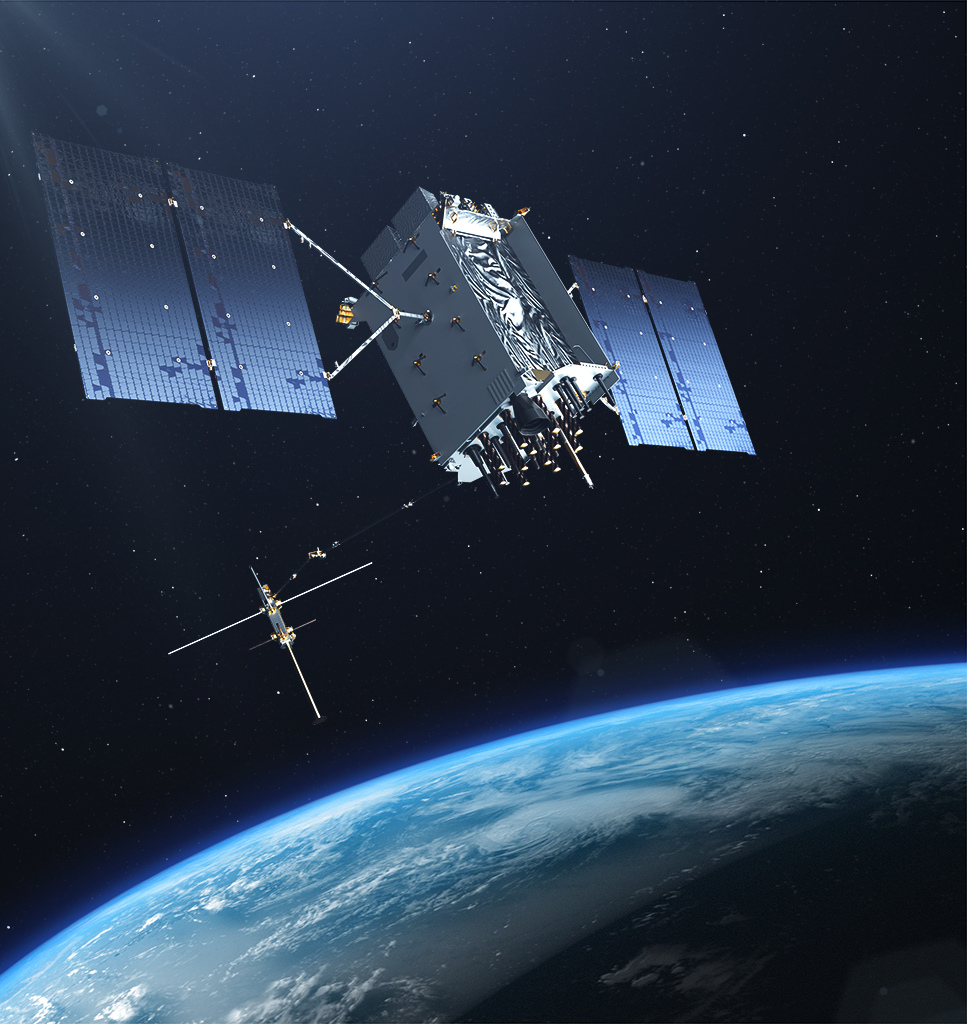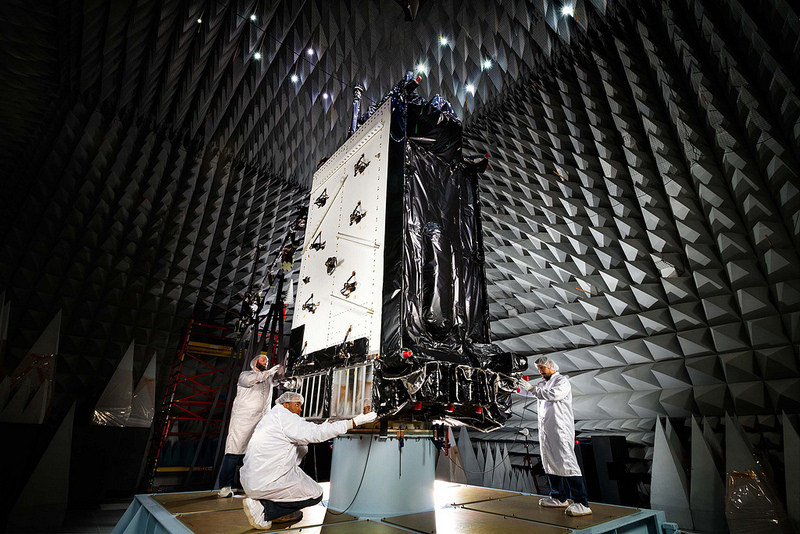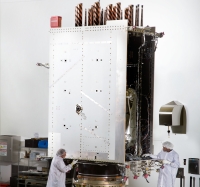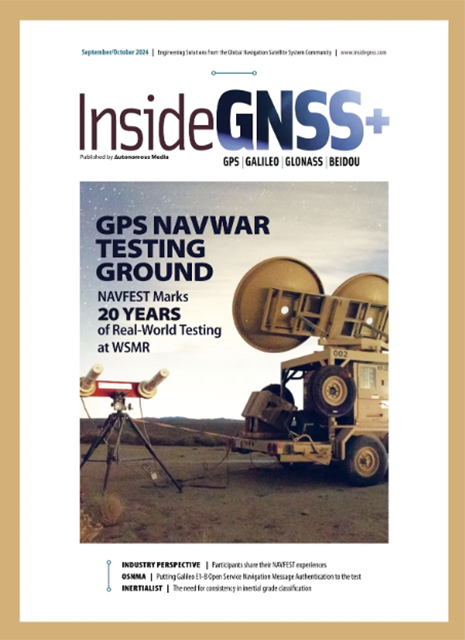The U.S. Air Force has awarded Lockheed Martin more than $245 million in contract options to complete production of its seventh and eighth GPS Block III satellites.
The two space vehicles (SVs 07–08) received initial funding under a February 2013 long-lead material contract for the Air Force’s second set of four satellites, GPS III SV 05–08. Similar to this current award announced yesterday (April 1, 2014), the Air Force exercised an option to complete production of SVs 05–06 in December 2013.
The U.S. Air Force has awarded Lockheed Martin more than $245 million in contract options to complete production of its seventh and eighth GPS Block III satellites.
The two space vehicles (SVs 07–08) received initial funding under a February 2013 long-lead material contract for the Air Force’s second set of four satellites, GPS III SV 05–08. Similar to this current award announced yesterday (April 1, 2014), the Air Force exercised an option to complete production of SVs 05–06 in December 2013.
The first two contracted GPS III satellites SV1 and SV2 are already progressing through sequential integration and test work stations specifically designed for satellite production at Lockheed Martin’s GPS III Processing Facility in Littleton, Colorado.
In December 2013, Lockheed Martin powered on the SV-02 satellite bus and network communications equipment payload for the first time. The successful power-on test demonstrated the satellite’s mechanical integration, validated interfaces, and leads the way for electrical and integrated hardware-software testing.
SV-01, which powered on in February 2013, now is in integration and test flow leading up to final delivery to the Air Force. Technical difficulties with the new navigation payload built by Exelis as well as delays in the parallel next-generation ground control segment modernization (OCX) will probably push the first GPS III launch date off until 2015, according to the Air Force Space Command.
"With eight GPS III satellites now fully under contract, the GPS III program is moving from development into recurring production," said Mark Stewart, vice-president of Lockheed Martin’s Navigation Systems mission area. "We continue to build on the lessons learned from development and this contract demonstrates the Air Force’s confidence in and continued need for the GPS III satellite."
According to Lockheed, GPS III satellites will deliver three times better accuracy, provide up to eight times improved anti-jamming capabilities, and include enhancements that extend spacecraft life 25 percent further than the prior GPS block. It will be the first GPS satellite with a new L1C civil signal designed to make it interoperable with other GNSS systems.





